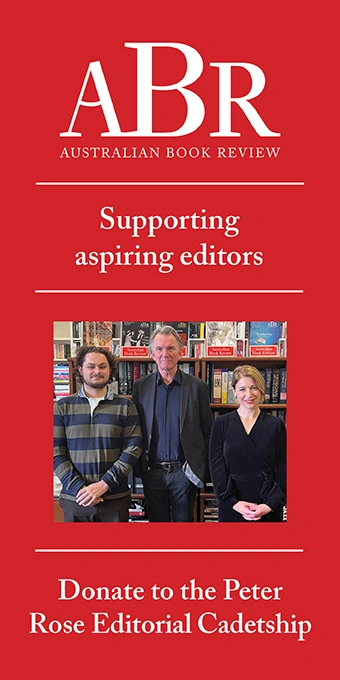Kieran Pender

Kieran Pender is an Australian writer and lawyer, based in Canberra. He is a senior lawyer at the Human Rights Law Centre, a visiting fellow at The Australian National University's Centre for International and Public Law and a consultant lawyer at Bradley Allen Love Lawyers. He regularly contributes to Australian Book Review, The Guardian, The Saturday Paper and Times Literary Supplement. He was previously based in London, as a senior legal advisor at the International Bar Association.
There is a paradox in the title of this book, The Power of One, by Facebook whistleblower Frances Haugen. It is an accurate description on one level, because the powerful whistleblowing that led to demands for stronger regulation and accountability in Big Tech was indeed the courageous choice of a lone individual, the author, an American engineer and data scientist. But as the book underscores, Ha ... (read more)
This book will at times quite literally take your breath away. A deeply reported account of the fall of Afghanistan’s capital, August in Kabul tells the harrowing stories of those who escaped and those who were left behind in the maelstrom of those two weeks between the arrival of the Taliban on 15 August 2021 and the final US flight to depart – at one minute to midnight on 30 August. Compelli ... (read more)
The ongoing war in Ukraine is not mentioned in Oliver Bullough’s new book, Butler to the World. That is not unexpected: it went to press before Russia invaded Ukraine. But Vladimir Putin’s illegal and reprehensible invasion looms large over this excellent new book about Britain’s role in enabling financial crime. The invasion is an acute example of the real-world consequences of this industr ... (read more)
On the first day of March this year, Scott Morrison declared his commitment to democratic principles. ‘My government will never be backward when it comes to standing up for Australia’s national interests and standing up for liberal democracy in today’s world,’ the prime minister told reporters. ‘We can’t be absent when it comes to standing up for those important principles.’ It was a ... (read more)
When World War II began, a defence regulation was issued in Great Britain that enabled the home secretary to imprison anyone who they reasonably believed had hostile associations. One such interned individual, Robert Liversidge, objected to his detention and challenged the validity of the home secretary’s decision. In the subsequent case, Liversidge v Anderson, the House of Lords adopted a defer ... (read more)
Across the Anglosphere, academic freedom is in crisis. That, at least, is the conclusion one draws from reading conservative newspapers and listening to right-wing politicians. Boris Johnson’s government, concerned about ‘unacceptable silencing and censoring on campuses’, recently announced plans to appoint a ‘free speech champion’ for British universities. In 2019, Donald Trump signed a ... (read more)
At the time of writing, Julian Assange – an Australian citizen – is detained at Her Majesty’s Prison Belmarsh in Thamesmead on the outskirts of London. Belmarsh is a high-security facility; Assange’s fellow inmates are terrorists, murderers, and rapists. The WikiLeaks founder is being held in solitary confinement, permitted out of his cell for just one hour each day. His crime? Assange is ... (read more)
The timing was apt. In September, Fake Law: The truth about justice in an age of lies – written by pseudonymous British writer ‘The Secret Barrister’ – was published in Australia. The same month, President Donald Trump nominated Amy Coney Barrett to the Supreme Court of the United States following the untimely death of Ruth Bader Ginsburg. From two legal systems that have historically infl ... (read more)
It is a damning – if not altogether surprising – indictment on our public discourse that the average Australian knows far more about political and social developments on the other side of the world than about those occurring in our ‘near abroad’. It takes just fifteen minutes to travel in a dinghy from the northern most island in the Torres Strait to Papua New Guinea. The flight from Darwi ... (read more)




